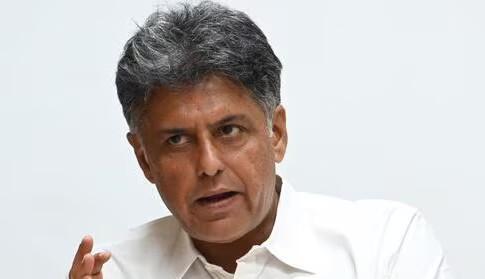
Against Constitution: Tewari on bills to remove jailed PM, CMs
In a recent development that has sent shockwaves across the political landscape, Union Minister Amit Shah presented three bills in Parliament aimed at removing Prime Ministers, Chief Ministers, and Ministers who face serious criminal charges. The move has been met with widespread criticism, with many arguing that it is a grave threat to the principles of democracy and the rule of law. Among those who have come out strongly against the bills is Congress MP Manish Tewari, who has termed them as “against the basic structure of the Constitution”.
Tewari’s opposition to the bills is rooted in the fundamental principle of Indian democracy, which is that one is innocent until proven guilty. He argues that these bills undermine this principle and create a culture of assumption and guilt by association, where individuals can be removed from office solely on the basis of charges against them, without being given a fair chance to defend themselves.
“The Indian Constitution says that one is innocent until proven guilty,” Tewari emphasized. “These bills are against this basic structure of the Constitution. They create a culture of assumption and guilt by association, where individuals can be removed from office solely on the basis of charges against them, without being given a fair chance to defend themselves.”
Tewari’s concerns are not unfounded. The bills, which have been hailed as a major step towards rooting out corruption and ensuring accountability in governance, have the potential to be misused by the government to target political opponents and silence dissenting voices. Under these bills, the government would have the power to remove Prime Ministers, Chief Ministers, and Ministers who face serious criminal charges, even if they have not been convicted or even charged.
This raises serious concerns about the erosion of the rule of law and the undermining of democratic institutions. If the government is given the power to remove individuals from office solely on the basis of charges against them, it would create a culture of impunity and corruption, where individuals would be more likely to abuse their power and less likely to be held accountable for their actions.
Moreover, these bills would also create a culture of fear and intimidation, where individuals would be reluctant to speak out against the government or challenge its policies, lest they be targeted for removal from office. This would have a chilling effect on democratic discourse and the ability of citizens to hold their elected representatives accountable.
Tewari’s concerns are also echoed by many legal experts and scholars, who argue that the bills are a clear violation of the Constitution and the principles of natural justice. “These bills are a clear violation of the Constitution and the principles of natural justice,” said Senior Advocate and former Law Minister, Kapil Sibal. “They create a culture of assumption and guilt by association, where individuals can be removed from office solely on the basis of charges against them, without being given a fair chance to defend themselves.”
The bills have also been criticized by many civil society organizations and human rights groups, who argue that they would create a culture of impunity and undermine the rule of law. “These bills would create a culture of impunity and undermine the rule of law,” said Kavita Krishnan, Secretary of the All India Progressive Women’s Association. “They would allow the government to target political opponents and silence dissenting voices, and would create a culture of fear and intimidation.”
In conclusion, the bills presented by Union Minister Amit Shah aimed at removing Prime Ministers, Chief Ministers, and Ministers who face serious criminal charges are a grave threat to the principles of democracy and the rule of law. These bills undermine the fundamental principle of Indian democracy, which is that one is innocent until proven guilty, and create a culture of assumption and guilt by association.
As Tewari has emphasized, these bills are against the basic structure of the Constitution and have the potential to be misused by the government to target political opponents and silence dissenting voices. It is essential that the government reconsiders these bills and ensures that they are in line with the principles of democracy and the rule of law.
News Source:
https://x.com/PTI_News/status/1958099763255201859






